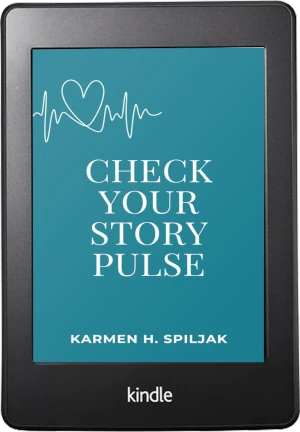The Roses is a brilliant remake of the 1989 classic The War of the Roses with Kathleen Turner and Michael Douglas. This time around, Olivia Colman and Benedict Cumberbatch bring dry, dark humour to the screen without stripping the story of its emotional core.
At its heart, The Roses is a case study in how to build a character-driven story that lingers. If you haven’t seen the film yet, you might want to bookmark this post as there are major spoilers ahead.
The Characters
Ivy and Theo Rose are wildly different people bound by a similar yearning: to be seen and appreciated for their work. Theo is an ambitious architect frustrated that his talent is wasted on clients who don’t recognise it. Ivy is a gifted chef whose creativity is sidelined and undervalued.
They meet when both are desperate for change, drawn together by their wit and shared humour. But while both are passionate about their work, Theo ties his entire identity to his career, whereas Ivy approaches hers with playful lightness.
Over time, their differences grow starker: Ivy prioritises fun and freedom in raising their children, while Theo favours discipline, daily runs, and rigid rules. What began as chemistry starts to calcify into conflict.
The Plot
The Roses’ story starts in a whirlwind of passion: Theo meets Ivy in her restaurant kitchen, and soon they’re building a life together in the USA. Ten years on, Theo is celebrated for his architecture, working on a groundbreaking maritime museum, while Ivy uses her culinary genius to prepare elaborate dishes for their children.
Wanting to honour her talent, Theo buys Ivy a seaside shack that she transforms into a small restaurant. When a storm destroys Theo’s museum and career in one blow, caught humiliatingly on camera, fate deals Ivy the opposite hand. Flooded freeways divert diners to her place, and a glowing San Francisco Chronicle review rockets You Got Crabs into an overnight success.
Roles reverse: Ivy becomes the breadwinner, Theo stays home with the children. At first it feels fair. But resentment brews; Theo bristles at her success, Ivy begrudges his bond with the children. Their clashing parenting styles fuel the fire, and the cracks begin to split wide open.
Attempts to fix things from therapy and a getaway to asking Theor to build their dream house, only worsen the fracture. By the time the house is finished, it’s too late. Ivy refuses to return to their old roles, Theo feels eclipsed, and what begins as a breakup spirals into all-out war. Divorce, property, revenge, nothing is off the table. The couple fight dirty until the bitter, darkly tender end.
The Story
At its core, The Roses flips the romantic cliché on its head: love isn’t all you need. Instead, it reveals the shadows of human ambition, the desperate need to be admired, the inability to let go.
It’s a story about truth: how knowing something is wrong doesn’t mean we won’t do it, and how the very traits that draw two people together can be the same ones that tear them apart. It’s both painfully recognisable and uncomfortably honest.
The Emotion
The film charts a devastating emotional descent. What begins as love and support corrodes into power games, pettiness, and cruelty. Theo admits to being ‘a dick’ but can’t stop himself. Ivy knows she struggles to apologise, but refuses to change.
Apologies and tenderness come too late, unheard through closed doors or headphones. Even small details carry emotional weight: Theo once rushed to save Ivy from her raspberry allergy with an epinephrine shot; later, he weaponises the allergy to blackmail her over the house. Ivy, in turn, cuts him where it hurts most – his ego.
The descent is believable, inevitable, and hard to look away from. Love turns to control fuelled by revenge. It reminds us how short the road is from love to hate, and how easily intimacy becomes ammunition.
The Genre
Marketed as a dark comedy, The Roses delivers on both fronts.
Humour: Wry, biting dialogue keeps the story sharp and intimate, both connecting and cutting the couple.
Foreshadowing: Every gift becomes a weapon, the shack that fuels Ivy’s career, the dream house that cements their downfall, the allergy that signals love before turning lethal.
Setting: Their sharp exchanges are often dismissed as British banter, allowing the conflict to escalate under the radar until it can no longer be ignored.
The film strikes a perfect balance between humour and darkness, crafting a narrative that’s both entertaining and excruciatingly human.
The Roses is a masterclass in character-driven storytelling. It builds on foreshadowing, emotional truth, and sharp dialogue to deliver a satisfying, if devastating, ending.
It leaves us with the uncomfortable truth: sometimes love isn’t enough and sometimes the thing that binds us is the very thing that destroys us.












